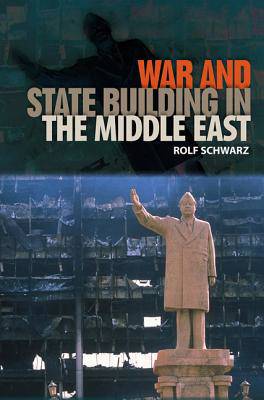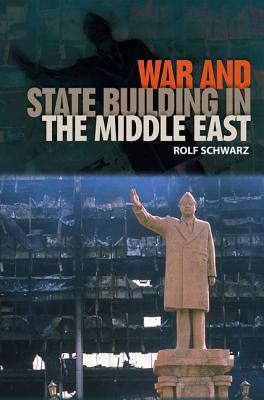
- Retrait gratuit dans votre magasin Club
- 7.000.000 titres dans notre catalogue
- Payer en toute sécurité
- Toujours un magasin près de chez vous
- Retrait gratuit dans votre magasin Club
- 7.000.0000 titres dans notre catalogue
- Payer en toute sécurité
- Toujours un magasin près de chez vous
Description
War and State Building in the Middle East addresses the strengths and weaknesses of the authoritarian-regime governments commonly found in the Middle East, particularly among oil-rich countries. In this region, war has interacted with processes of state making in ways that fundamentally differ from the European experience. In short, unlike in Europe, wars do not make states in the Middle East; they destroy them.
According to economic theory, most oil-rich countries are rentier states; that is, they rely upon the extraction of a natural resource to generate revenue and authority for the central government. As a result, there is little reliance upon domestic taxation and a general lack of political accountability and transparency. By examining how such governments wage war, Rolf Schwarz turns the prevailing wisdom of modern state building on its head. He closely analyzes the real-world experiences of the United Arab Emirates, Jordan, and Iraq to show how rentierism leads to internal weaknesses when it comes to governing. His comparative approach allows him to demonstrate how varying levels of reliance upon external resource rents are reflected in the structure of the regime. By highlighting the perils of funding wars through the sale of natural resources, fighting with imported weaponry, and accepting peace settlements negotiated and guaranteed by foreign powers, Schwarz offers provocative insights into post-conflict peace building, state failure, and the potential for democratic rule in the region.Spécifications
Parties prenantes
- Auteur(s) :
- Editeur:
Contenu
- Nombre de pages :
- 172
- Langue:
- Anglais
- Collection :
Caractéristiques
- EAN:
- 9780813044743
- Date de parution :
- 15-04-13
- Format:
- Livre broché
- Format numérique:
- Trade paperback (VS)
- Dimensions :
- 152 mm x 229 mm
- Poids :
- 258 g

Les avis
Nous publions uniquement les avis qui respectent les conditions requises. Consultez nos conditions pour les avis.






